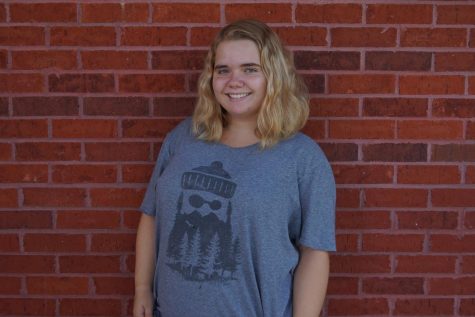Breast Cancer as a Commodity: How October Takes Advantage of a Disease
: Raider nation’s “pink-out” football game was Oct. 20 and proceeds from school t-shirt sales were donated to breast cancer research. Doing your part to spread awareness and contribute to fighting breast cancer is an activity that binds together an entire community; everyone is impacted.
November 6, 2017
Each year, October is a month in which leaves turn brown and just about everything else turns pink. Football teams abandon their team colors to fill a stadium with pink shirts, socks, paint, cleats and towels. Even at North, the Raiders help to spread awareness with the yearly “pink-out” football game, donating proceeds from t-shirt sales to breast cancer research. However, with all the awareness-spreading activities comes another annual question: is disease commercialized by large corporations for financial or political gain?
The answer, unfortunately, is yes. The first National Breast Cancer Awareness Month was in 1985, and the 30 years since then have presented countless opportunities for its exploitation. As more and more organizations create ways to participate in “pinktober,” further contradictions form. For example, Susan G. Komen for the Cure commissioned a perfume in 2011 that contained unlisted toxic/breast-cancer-causing chemicals. It was pulled a year later in 2012, but the damage had been done; a company had profited off of the promise to make a difference in the dark world of breast cancer.
The process is known as “Pinkwashing” and has expanded to describe the commercialization of breast cancer for purposes of donation with some kind of underlying dishonest intent. Analyzation of the fine print of many widely trusted organizations will expose the truth: consumers often can’t tell when a company’s promise is false. Often, the specifics of a donation will not be explicitly mentioned without a customer actively seeking the money recipient, like when the Dansko shoe company sold shoes for awareness and never donated any proceeds to charity. Dansko did give a set donation of $25 thousand dollars to Susan G. Komen, but the donation was in no way associated with shoe sales.
Despite the possibility for commercial deceit and company profit, National Breast Cancer Awareness Month offers some true opportunities to contribute. One example is Breast Cancer Action, a charity that rejects funding from corporations that in any way commoditize cancer. This month, the best that can be done to support breast cancer survivors and sufferers is to donate wisely and stay informed.




